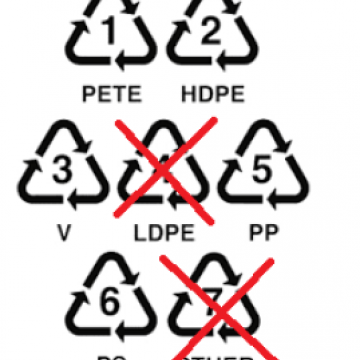Packaging
Many of the University’s suppliers take back their packaging and recyclable waste. Please check the list of collection and recycling schemes here.
Paints and varnishes
Water based non-hazardous paints and varnishes which are empty or dried out (no liquid) may be placed in the general waste bin. If liquid is still present then a separate liquid waste collection must be organised.
Hazardous paints or varnishes must be disposed of through the hazardous waste service operated by the Safety Office.
Pallets
Every effort should be made to return pallets to suppliers. Where deliveries are infrequent, effort to unload the pallet on arrival to return it immediately is preferable. Once it is no longer possible to return the item to the supplier the University department must arrange for the item to be collected.
If pallets are a problem material for your site please email wastemanagement@admin.ox.ac.uk to assist with identifying a suitable operational solution. Allowing pallets to build up on site can cause security and fire risks.
Paper
Paper can be placed in the clear bag in Dry Mixed Recycling (DMR) (lime green) bin. Your site may also have a designated paper collection. Paper that has been shredded on site must be placed in the black general waste bin.
Ensure bins are not overloaded with paper as they will become too heavy to move.
If you are disposing of a large amount of paper at the same time arrange for an extra collection.
Confidential shredding can be arranged through Select Environmental.
You can contact the Select Environmental Account Manager at email oxford@selectenviro.co.uk or call 0118 975 9000 or 0770880 4333.
Pipette tip box recycling
Some sites across the University (lab based buildings) have designated waste stream for pipette tip box recycling. Ask your building manager for the one you can use or ask for setting up a collection point by contacting Select Environmental Account Manager at email oxford@selectenviro.co.uk or call 0118 975 9000 or 0770880 4333.
Plastic packaging (Plastic bottles, bubble wrap)
The disposal route for your plastics will depend on what type of plastic it is. If the plastic packaging has any material present inside then the disposal route should follow the route for the material within the container. No plastic containers containing any substance should be placed in the Dry Mixed Recycling (lime green) bin.
On most plastics an identification code can be found relating to the type of plastic use, known as the Resin Identification Coding System. Plastics 1, 2, 3, 5 and 6 can be placed in DMR, 4 and 7 should be placed in the General Waste (black) bin.
Paper towels / hand towels
Paper hand towels should not be placed in recycling but rather placed into general waste.
Paper towels are low quality and have often been recycled multiple times already. They can also be wet and contaminated.
Polypropylene
Some sites across the University (lab based buildings) have designated waste stream for polypropylene. Ask your building manager for the one you can use or ask for setting up a collection point by contacting Select Environmental Account Manager at email oxford@selectenviro.co.uk or call 0118 975 9000 or 0770880 4333.
Polystyrene (expanded)
Expanded polystyrene that cannot be returned to the supplier for reuse, can be collected for recycling in a designated waste stream. There are a few recycling collection points in ORC. Ask your building manager for the one you can use or ask for setting up a collection point by contacting Select Environmental Account Manager at email oxford@selectenviro.co.uk or call 0118 975 9000 or 0770880 4333.
Hard polystyrene
Hard polystyrene marked with the recycling symbol and number 06 (with or without the letters PS) may be recycled in the DMR (Dry Mix Recycling) bins. These include CD cases, plastic forks and some containers.
Printer cartridges
The below lists the known printer cartridge recycling schemes. If you are aware of any others, please contact sustainability@admin.ox.ac.uk.
| Where are you based? |
Scheme available |
Toners accepted |
Contact information |
| Any University site |
XMA recycling scheme |
XMA cartridges only |
anghelina.intimanny@xma.co.uk
|
|
Beaver House, Dartington House, Exam Schools, Hayes House, The Malthouse, Wellington Square, or Worcester Street
|
Xerox recycling scheme |
Xerox cartridges only |
facilities@admin.ox.ac.uk
Tel: 70087
|
|
Bodleian Libraries, Clarendon Building, Old Bodleian, Radcliffe Camera, or Weston Library
|
Office Depot recycling point via the porters at Old Bod, or order a recycling box from Office Depot |
Any type accepted |
chris.newton-dunn@officedepot.eu |
Back to top




